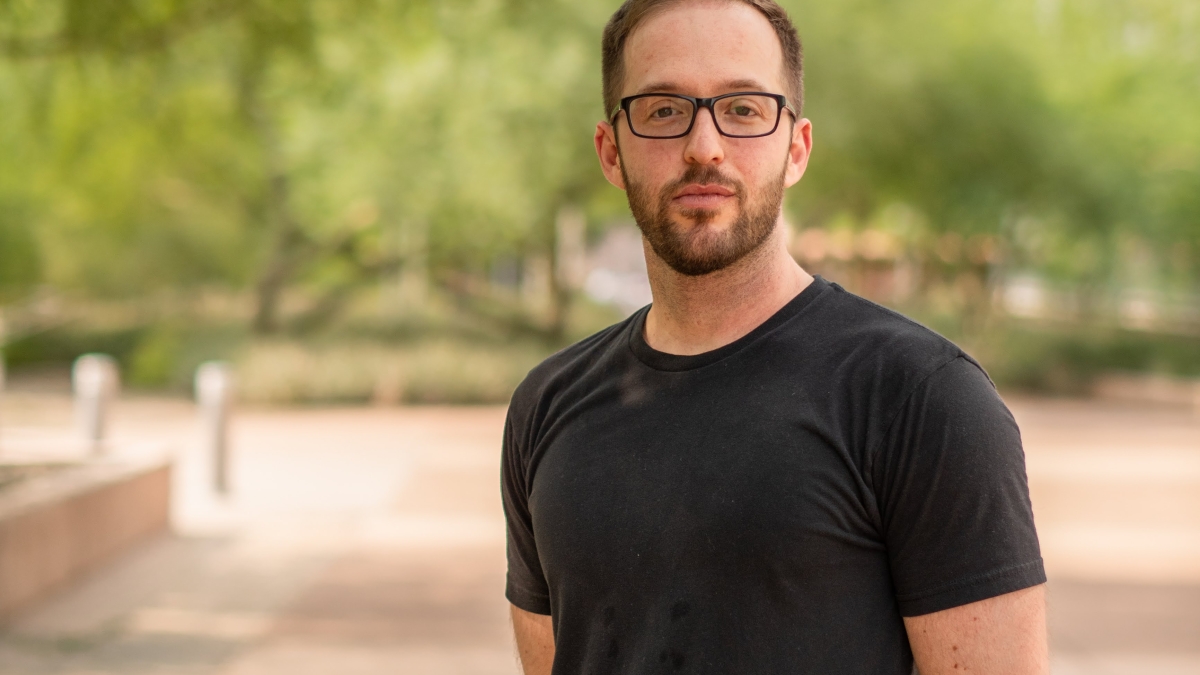Study shows body shape can predict whether women devalue themselves

Michael Barlev, assistant research professor of psychology at ASU.
Body shape, not just weight, drives stigma related to overweight and obesity, and now a new study has shown that the location of fat is also linked to how women feel about their bodies.
The work, from the Arizona State University Department of Psychology, showed that women with fat located on the hips, buttocks and thighs devalued themselves less than women of the same weight but with fat located on their abdomens. The study was published in Social Psychological and Personality Science.
“Body shape determines how society treats us,” said Michael Barlev, assistant research professor at ASU and a lead author on the paper. “Perhaps because of this, it also determines how we treat ourselves. For women who carry more of their fat in their abdomen, additional fat is associated with more negative thoughts or feelings about themselves, such as lower self-esteem. But for women who carry more of their fat on their hips, buttocks and thighs, the self-devaluation that many people assume comes with overweight or obesity is greatly reduced, and sometimes eliminated.”
The researchers analyzed body composition data from the Centers for Disease Control and Prevention and measured body composition and fat location in university student participants. Body shape was related to how women reported feeling about themselves and matched the social perception of their bodies.
Where fat is located on the body determines body shape but is also indicative of different biological functions and health outcomes. Gluteofemoral fat located on women’s hips, buttocks and thighs appears to contribute to offspring brain development and signals future success at having children. Gluteofemoral fat is also connected to fewer health problems than abdominal fat, which is associated with cardiovascular disease and diabetes.
“Fat stigma can be quite psychologically costly,” said Steven Neuberg, Foundation Professor, chair of the ASU Department of Psychology and senior author of the paper. “Understanding the nuanced ways people think about their own body fat is likely to lead to better approaches to reducing not only the costs of such stigma, but also the stigma itself.”
The research team also included Ahra Ko, psychology graduate student at ASU, and Jaimie Arona Krems, assistant professor at Oklahoma State University. This study was funded by the Arizona State University Foundation for a New American University, with support from the Mayo Clinic and ASU Obesity Solutions.
More Science and technology

Indigenous geneticists build unprecedented research community at ASU
When Krystal Tsosie (Diné) was an undergraduate at Arizona State University, there were no Indigenous faculty she could look to…

Pioneering professor of cultural evolution pens essays for leading academic journals
When Robert Boyd wrote his 1985 book “Culture and the Evolutionary Process,” cultural evolution was not considered a true…

Lucy's lasting legacy: Donald Johanson reflects on the discovery of a lifetime
Fifty years ago, in the dusty hills of Hadar, Ethiopia, a young paleoanthropologist, Donald Johanson, discovered what would…